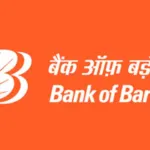India Post Payments Bank (IPPB) wants to convert itself to a universal bank like SBI, Is the bank not able to survive?

India Post Payments Bank (IPPB) wants to convert itself to a universal bank as the vast network of post office branches would help in achieving financial inclusion, its MD and CEO J Venkatramu said on Tuesday. IPPB is right now a payments bank and now wants to get converted into a full-fledged bank like SBI, PNB. But why, IPPB wants so? For this, you first need to understand what is a payments bank and what are its limitations.
What is a payments bank?
Payments banks are new model of banks, conceptualised by the Reserve Bank of India (RBI), which cannot issue credit. These banks can accept a restricted deposit, which is currently limited to Rs.200,000 per customer and may be increased further. These banks cannot issue loans and credit cards. Both current account and savings accounts can be operated by such banks. Payments banks can issue ATM cards or debit cards and provide online or mobile banking. Bharti Airtel set up India’s first payments bank, Airtel Payments Bank.
Limitations or Disadvantages of Payments Bank
- Payment banks receive a ‘differentiated’ bank license from the RBI and hence cannot lend.
- Payment banks cannot issue credit cards.
- It cannot accept time deposits or NRI deposits.
- It cannot issue loans.
- It cannot set up subsidiaries to undertake non-banking financial activities.
IPPB is not able to expand its business and thus, wants to get converted into a uninversal bank. IPPB aims to utilize all of India’s 155,015 post offices as access points and 3 lakh postal postmen and Grameen Dak Sewaks to provide doorstep banking services. IPPB has been allowed to link around 17 crore postal savings bank (PSB) accounts with its accounts.
MD and CEO J Venkatramu said when the IPPB started operations in 2018, 80 per cent of the transactions would happen in cash. However, with technology adoption, presently only 20 per cent of the transaction happens in cash and 80 per cent digitally.
"Given the network of post offices, probably we fit the bill in terms of being the institution which can reach every nook and corner. If we get a full fledged banking licence, especially for financial inclusion, that will help us serve larger goals," Venkatramu said at a CII event. He was replying to a question on the bank approaching the Reserve Bank of India (RBI) for universal bank licence.
He said credit is an important facet of financial inclusion as well as social upliftment, the vast network of post offices could help in financial inclusion and extending credit. As a payment bank under the RBI, IPPB can extend services of deposits, remittances, internet banking and other specified services, but they cannot give loans or issue credit cards.
India Post Payments Bank (IPPB)
India Post Payments Bank, abbreviated as IPPB, is a division of India Post which is under the ownership of the Department of Post, a department under Ministry of Communications of the Government of India. Opened in 2018, as of January 2022, the bank has more than 6 crore customers.
| Type | Division of Indian Post |
| Industry | Financial services |
| Founded | 1 September 2018 |
| Headquarters | New Delhi, India |
| Area served | India |
| Key people | Vineet Pandey, IPoS (Secretary, Department of Posts) J. Venkatramu, IPoS (MD & CEO) |
| Products | Banking |
| Services | Financial Services |
| Owner | India Post, Department of Post, Ministry of Communications, Government of India |
| Website | ippbonline.com |
The bank also provides features like:
- Account: The bank offers savings and current accounts up to a balance of ₹2 Lakh.
- QR Card: Customers can use QR code payments eliminating the need to remember account numbers, PINs and passwords.
- Unified Payments Interface
- Immediate Payment Service
- National Electronic Funds Transfer
- Real-time gross settlement
- Bharat BillPay
- Direct Benefit Transfer
- RuPay Debit Card
- AEPS(Adhaar Enabled Payment Service)






Software very slow, more time waist,
After lunch time – is this Internet?
We don’t want second SBI
It can survive universal level also proceed
Soon
Tata AIG policy and post policy service claim services bad